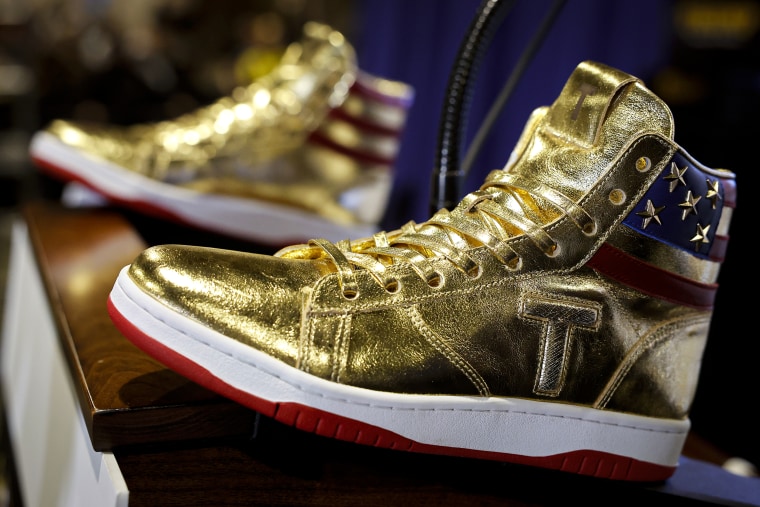
Trump’s Unprecedented Sales: Bibles, Sneakers, and Perfume – Experts Weigh In!
The Bible, Sneakers, and Perfume: Unprecedented Ventures for a Presidential Candidate
From the realms of traditional politics emerges an unexpected trend – presidential candidates indulging in business deals outside the conventional arena. The recent news of Donald Trump’s foray into diverse markets, ranging from Bibles to sneakers and perfumes, has raised many eyebrows and sparked discussions among experts and observers alike. While some view these ventures as a savvy strategic move, others question the ethical implications and potential conflicts of interest such activities may pose for a presidential candidate.
One of the most notable products in Trump’s new business lineup is the Bible. Partnering with a renowned publishing house, Trump’s branded edition of the holy scripture has garnered significant attention. The idea of a presidential candidate associating themselves with a religious text raises complex questions about the intersection of faith, politics, and commercial interests. While some supporters view it as a gesture of reverence towards religious values, critics warn of a blurring of lines between the sacred and the profane in a bid to attract voters from particular religious demographics.
Moving beyond the spiritual realm, Trump’s entry into the sneaker market has also captured the public’s imagination. Leveraging his larger-than-life persona, the candidate’s branded sneakers have become a symbol of his campaign’s unique approach to traditional politics. By tapping into the lucrative athletic footwear industry, Trump aims to connect with a younger audience and expand his reach beyond the confines of conventional political advertising. However, skeptics caution against the commodification of political symbols and the potential trivialization of serious political discourse through such consumer-driven tactics.
In a surprising twist, Trump has also ventured into the world of perfumery with his signature fragrance. Marketed as a scent that embodies the qualities of leadership and success, the perfume has attracted a mix of curiosity and criticism. Some see this move as an attempt to humanize the candidate and present him as a multifaceted figure beyond his political persona. However, others point out the risks of trivializing the electoral process by reducing it to a mere product endorsement exercise.
As experts analyze Trump’s unconventional business ventures, they raise pertinent questions about the ethical implications of blurring the lines between commerce and politics. While presidential candidates have historically maintained a certain distance from commercial enterprises to avoid conflicts of interest and maintain the integrity of their political mandate, Trump’s approach challenges these norms. The merging of business interests with political ambitions opens up a Pandora’s box of ethical dilemmas and potential conflicts that could undermine the transparency and accountability of the electoral process.
In conclusion, Donald Trump’s deals to sell Bibles, sneakers, and perfume represent a departure from the traditional boundaries that have defined presidential campaigns. While these ventures may signal a shift towards a more commercially-driven approach to politics, they also raise important questions about the ethical considerations that should guide the behavior of presidential candidates. As the public grapples with the implications of these unprecedented business endeavors, the intersection of commerce and politics takes center stage in the ongoing discourse surrounding the 2020 elections.
